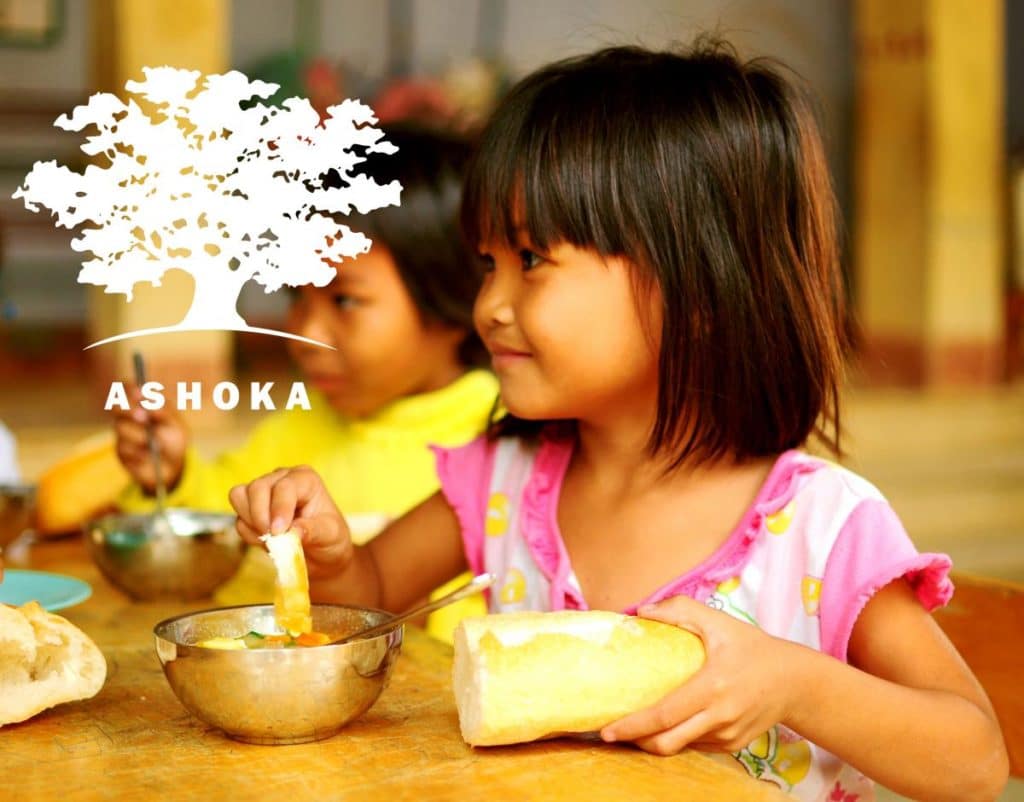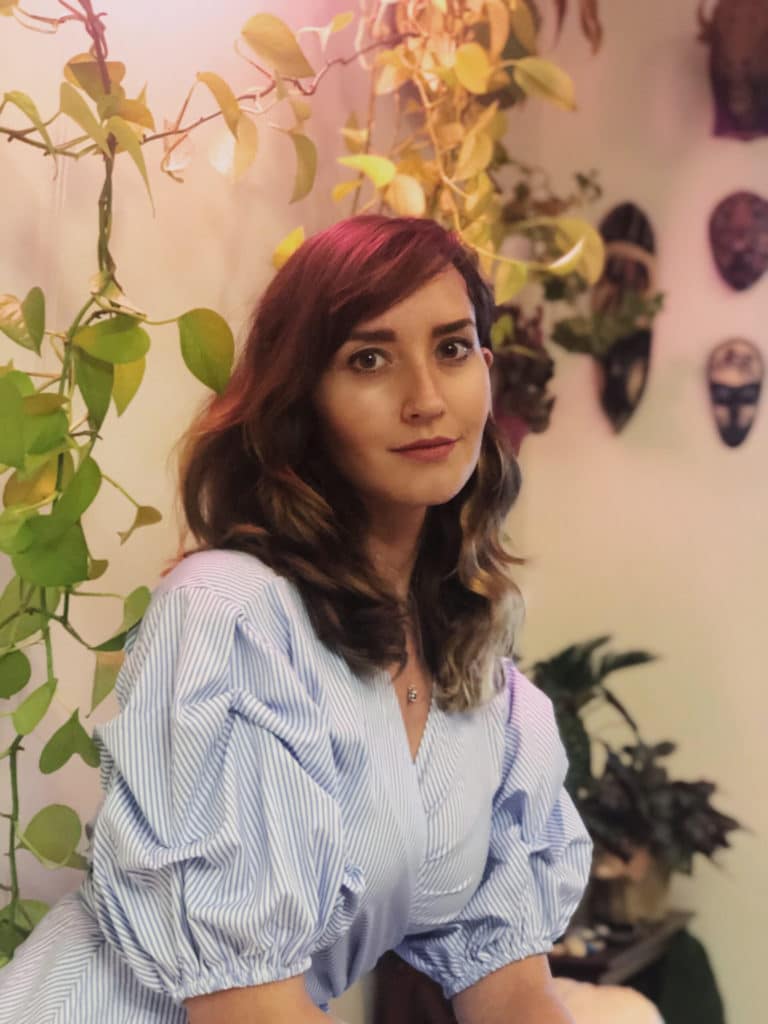What is a “changemaker”? Who can be one? Discover the answers to these questions and more in this special Q&A guest blog post with Vishnu Swaminathan, vice president of global partnerships at our Charity Alliance partner, Ashoka.
Ashoka’s vision is a world in which everyone is a changemaker—a society that responds quickly and effectively to challenges, and where everyone has the freedom, confidence and societal support to address any social problem and change their world.
At Ashoka’s core are social entrepreneurs, or Ashoka fellows, who are visionary and persistent individuals with innovative ideas and solutions to society’s most pressing social, cultural and environmental challenges for national, regional and global impact. For more than 40 years Ashoka has developed the world’s largest network of social entrepreneurs, a community of over 3,600 systems-change leaders across 90 countries with solutions addressing society’s most pressing issues.
1) Who can be a changemaker? Where can we find them, and what roles do they have in our communities?
A changemaker is someone who imagines a new reality, takes action and collaborates with others to bring that new reality into being for the good of others. Anyone – at any age – can be a changemaker.
By learning from the patterns of innovations and trends in social change from Ashoka fellows, Ashoka recognizes the critical role that everyone needs to play to build a more resilient, equitable and sustainable world. Our world today is changing fast; it is more uncertain and unpredictable than ever before. Navigating a world of change requires a new set of skills and mindsets.
At Ashoka, we believe the ability to solve problems will not only enable us all to navigate a world of change, but drive it. We can all develop the knowledge, skills, attitudes and values that are essential to living for the common good and to making our new world a better world.
2) What traits does someone need to exhibit or possess in order to be a changemaker, and can anyone truly be one?
Being a changemaker is a lifelong journey. Throughout that journey, we see several abilities that are essential for anyone to lead change. The four primary abilities are: conscious empathy, collaborative teamwork, a new form of leadership (where everyone can lead) and, of course, practicing changemaking. These abilities are universal and start with empathy. Once we can open ourselves up to new ways of learning and doing, deeply empathize with a problem, and spot patterns, we have the foundation to take initiative. With these abilities, changemakers draw on their other unique resources, skills, talents and passions to take their dream into reality, constantly reiterating, learning and growing along the journey.
It is integral that these skills be learned while growing up. 65% of Ashoka fellows had their first changemaking experience before the age of 21, and we’ve seen instances of people as young as 10 years old taking the initiative to introduce new ideas to solve social problems. That being said, changemaking has no limits. The best time to start your changemaker journey is now.
3) How can private, public or charitable entities make room for, employ and learn from “changemakers”? How can they get involved with Ashoka?
Ashoka has co-created a variety of strategic and visionary engagements that leverage both our unique insights and our partners’ strengths to equip generations of changemakers. Through Ashoka’s global network of changemakers, we partner with organizations across sectors to advance the field of social entrepreneurship and tip mindsets around changemaking.
In addition to our history of searching and selecting leading social entrepreneurs, Ashoka supports systems-change leaders throughout their careers through the fellowship program. To change mindsets, Ashoka works with schools and educators to prioritize empathy and changemaking as core abilities for growing up. We partner with companies to help them embrace and adopt their powerful role for social change, solving societal problems at scale through their core business. We also prepare young social innovators with the tools and skills they need to become leading social entrepreneurs one day and activate others to find their power, too. Each of these experiences is built from an expertise we have fostered for over 40 years and is designed to enable more changemakers within the partner’s own organizations and networks.
If you’re interested in getting involved, reach out via our website.
4) As the world confronts racism, particularly regarding the ongoing strides toward racial justice, as well as incidents spurred by the COVID-19 pandemic, how has training, messaging and the conversation at Ashoka evolved to address and solve the immediate concerns of communities nationally and internationally?
The disturbing and alarming inequalities that have been put at center stage recently are long-term systemic disparities. Ashoka is dedicated to changing both systems and mindsets to combat these historic and new inequalities by supporting the social entrepreneurs who are leading systems change and offering new ways of seeing and engaging with the world around us. Ashoka has always had a human-centered approach, uplifting people and their ideas for social change while learning from patterns of innovation to prepare everyone with the skills they need to solve problems.
The COVID-19 pandemic has exacerbated many existing disparities, and it is these very issues hundreds of Ashoka fellows have been working to change for quite some time. When supporting both long-term systems change and meeting immediate concerns, we are fully aware of the decades and centuries of injustice changemakers are up against. But we have a commitment to seeing the pivotal work of not only ending inequalities like global racism and health disparities, but have the reinforcing structures that will solidify these changes for generations.
5) Ashoka has a global reach, with changemakers in 92 countries. How have the short-term and long-term goals evolved for Ashoka? Can you share with us some initiatives/programs that will be launched this year?
Currently, Ashoka is focused on several priority areas that will enable us to build a world where everyone is a changemaker: social entrepreneurship, empathy and young changemaking, and new fields of innovation. In the next year, we ambitiously aspire to elect and support 200 social entrepreneurs into the fellowship program. We are determined to reimagine the growing-up years where changemaking becomes the new literacy, so every young person is equipped with the skills they need to thrive throughout their lives. We are also exploring Ashoka’s role in new fields, such as gender, tech for humanity, longevity, as well as the planet and environment to identify innovators in these fields, set audacious collective goals with visionary changemakers, pilot new ways of organizing teams, and amplify learnings and insights within the field.
If you’d like to follow our work from home, you can join one of our weekly Welcome Change conversations to learn how Ashoka fellows are using their innovative solutions to solve the world’s complex problems and what patterns they see in their work. To find more virtual events open to the public, check out live.ashoka.org.
It is increasingly clear that governments, corporations, philanthropy and individual citizens alone cannot solve the world’s most pressing problems. In a world where the rate of change is ever increasing, we need more people with the big ideas, tools and competencies to work effectively across fields to realize answers together. Ashoka is the home for changemakers around the world, supporting the past, present and future generations of social innovators with the opportunities and communities they need to drive lasting change.
Support Ashoka’s mission and their community of changemakers, including tomorrow’s leaders, and get involved today.



